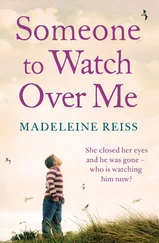I shook my head against her earnestness. There was something of my brother in her certainty about the way the world should run. “Nonsense,” I told her. And tried to laugh. “I don’t need consolation.”
I heard her sigh with false patience. “Compensation!”—shouting it. “I think you should seek some compensation. For pain and suffering.”
I laughed again, sincerely this time. “Not much chance of that,” I told her. “Not in this life.”
Inside, she fixed me a cup of tea and a hastily arranged ham sandwich. I settled on the couch in the sunroom with a blanket and a pillow. My daughter kissed the top of my head. “You’ll be all right?” Of course, I understood it wasn’t an honest answer she was looking for.
“I’ll be fine,” I said. “You’d better run.”
“Helen will be by this afternoon,” she said. “I’ll stop by in the morning.”
“You are good girls,” I told her.
I closed my eyes. I was aware of my daughter’s broad frame standing over me. She wore a dark business suit. “I didn’t mean to hurt your feelings, about Uncle Gabe,” she said, but then added with a laugh, “We’re all pretty sure he was gay.”
I had heard these discussions before among my children. There was a lightness to them, a buoyant interest, as if they were talking about a character on TV. I put my wrist over my eyes to show her I was tired.
I said, “I don’t see the world the way you kids do.”
Susan said, turning away, “Sometimes you don’t see it at all,” getting the last word. I had to laugh at that. She was my daughter.
“Is it you again?” the young man said, bowing a bit before he took the chair beside me. “I think we met before. I knew your brother.”
But my glasses were in my purse, and even if I’d had them on, I would not have made the connection between this thin blur of a young man and the chubby, florid guy who—he said now—could have bitten his tongue when he once again called my brother “Father,” even after Gabe had so politely explained that this was no longer the case. On Court Street, before the war.
“Would it be impolite of me to ask what happened?” he said. “Why he left? He seemed like a good priest. He always gave a good sermon.”
“Well, yes, it would,” I said, and then relented, because he had, after all, crossed the room—a crowded hotel party, a homecoming for some boy I barely knew, the friend of a friend of Gerty’s—just to sit beside me. “It wasn’t for him,” I said. And then, relenting further, “He once said it was because they threatened to throw him out of the seminary for smoking. He said after that he couldn’t light up without questioning his vocation.”
He had a round, gullible face. “No kidding.”
I waved my hand. I decided I might as well put my glasses on. I had no interest in someone with so little sense of humor.
“Just joking,” I said, and took them from my purse. On occasion I had heard my mother say to those who persisted that Gabe had come home to take care of his mother, after our father died, What else could a loving son do? But I was not inclined to risk foolish tears, mentioning such a thing to this slip of a stranger.
Seen clearly, he was indeed thin, his collar didn’t touch his neck, and as a result the knot of his tie seemed somehow unanchored. I had the impression that inside his clothes his flesh was a good inch or so away from the fabric. There were shadows in his cheeks that I had at first attributed to my eyesight, but that I could see now were actual and his own. Even the cuffs of his suit jacket and his shirt seemed too large for him. His hands beneath them were childishly pale.
“Did you just get home?” I asked, relenting again. I was beginning to recognize the look of a GI who’d had a tough time in the war.
“A while ago,” he said, and pulled his lips down in a clownish frown. Then he raised his hand and passed it in front of his face—the comic routine—and he was grinning at me. He had lovely small white teeth.
“Where were you stationed?” I asked, but he shook his head with a brief, Bogey grimace and asked instead, “What’s your brother up to now?”
I told him he was home with us, back at his old job, thinking about college.
“Married?” he asked, and when I said, “Not yet,” he nodded as if he understood something I might not. “Once a priest, always a priest,” he said, with more wisdom than I was willing to allow him.
I swatted my hand to brush the platitude away. “Oh, he’s got a string of girlfriends,” I said, and saw by the way he dropped his eyes to the drink in his hand that I had embarrassed him.
He bowed his head to sip from his glass. There was the awkwardness of a halting conversation with a stranger in a crowded room—would it continue or would one of us soon turn away? Gerty and the two other girls I had come with were somewhere in the crowd. Were he to turn away, I would be left sitting alone.
“And what about you?” I asked him, mostly because I did not want to end up sitting here alone, but also because there was the unmistakable tug of sympathy for a guy who so clearly had had a tough time in the war.
He held up his hands and said, “No strings of girlfriends here.” The blush was visible even beneath his thinning hair.
Which made me blush in turn. This was not going well. “I meant work,” I said. “Are you back to work?”
He nodded. “Back doing my patriotic duty,” he said, saluting, “brewing beer,” and with that the recollection stirred itself and I knew for certain what day it had been when my brother and I had met him on the street, late August, Court Street, before the war.
Later that same night I asked him, “How did you know me? After just one meeting, after all that while?”
I was giving him the opportunity to say, Oh, I knew you. I’ve remembered you across all these years. But he laughed and confessed he hadn’t known me at all. That he’d been sitting with a group across the room and one of the girls was filling everybody in on who was who—pointing her bouncing finger here and there around the room and finally coming to me. He made the connection with the young priest he’d once known, the priest he’d once run into on the street, no collar, no longer a priest at all. He asked and learned that yes, indeed, Gabe was my brother.
And then he had crossed the room to introduce himself: Tom Commeford, although I had not remembered the name.
We were at the foot of our stoop. He had taken me home from the hotel, and we had already agreed to see a movie together on my next night off. He’d laughed when I told him where I worked, because, he said—wasn’t it funny how things turn out—it was a wake at Fagin’s funeral parlor that had brought him to Court Street that hot afternoon in August, before the war.
Standing in the subway coming home, he had leaned toward my ear and said, “Aren’t we in the same profession more or less: biers and beers, stiffs and getting stiff, waking and going out like a light.” He might have gone on like that if I hadn’t lost my balance as the car shifted and grabbed his arm. He had patted my hand reassuringly.
He was thin, no more than an inch or two taller than I, balding and round-faced. He should have said, more gallantly, “Oh, I’ve remembered you all along.”
He lifted his hat with one hand as he put out the other to say, “I’m very glad to have met you,” there in the streetlight in front of our house. “To have met you again,” he added.
I took his hand and surprised myself by saying, “Would you like to come up? Gabe would love to see you.”
He shook his head. “Oh, he won’t remember me.”
I looked over my shoulder to see that the light was on in my brother’s bedroom. He would be reading. He hardly slept for all his reading. He had plans to go to college. “Gabe remembers everyone,” I said. “He has the knack.”
Читать дальше












